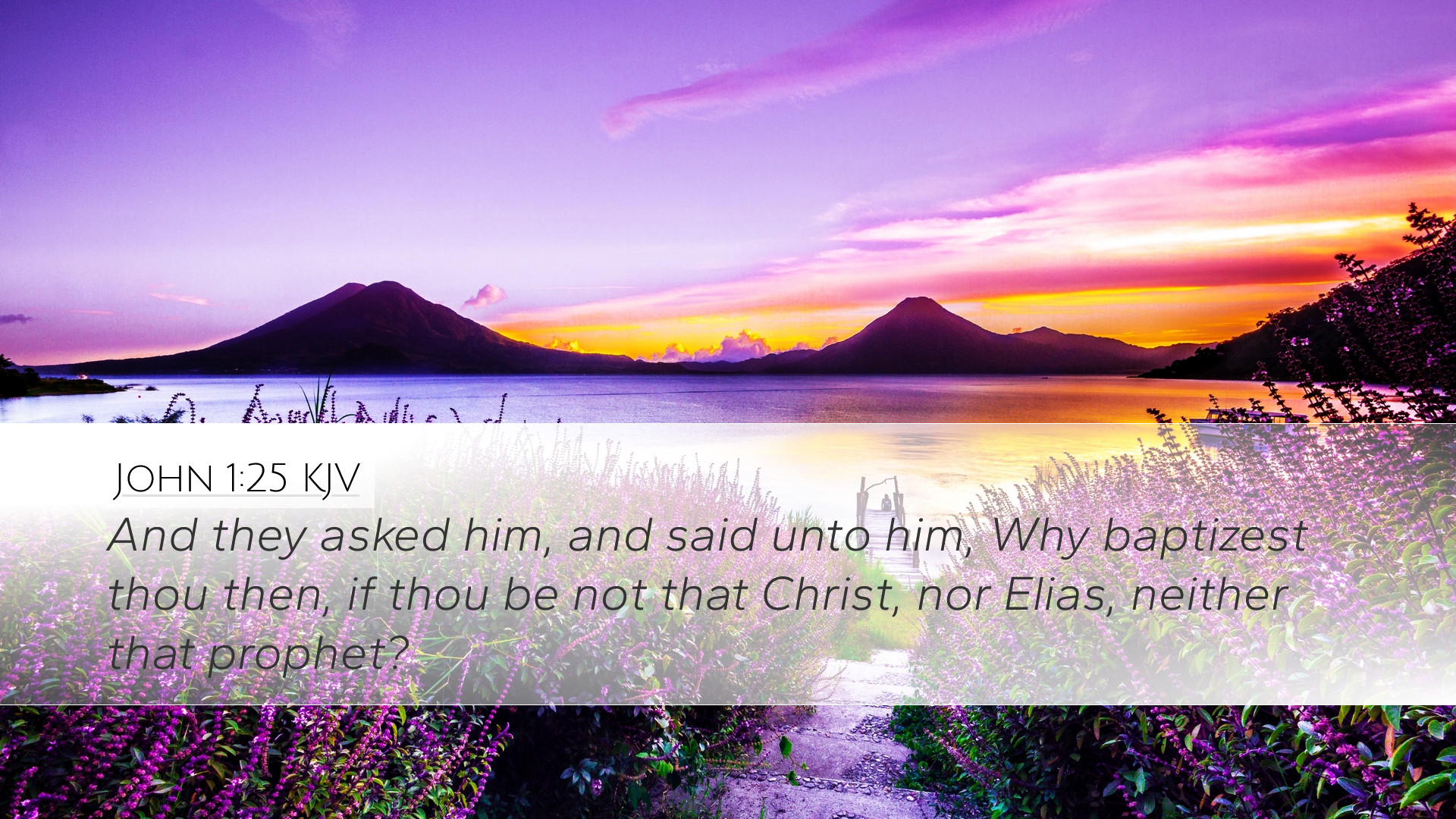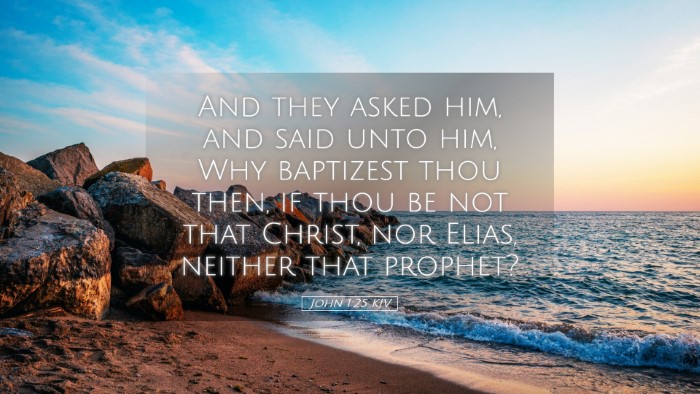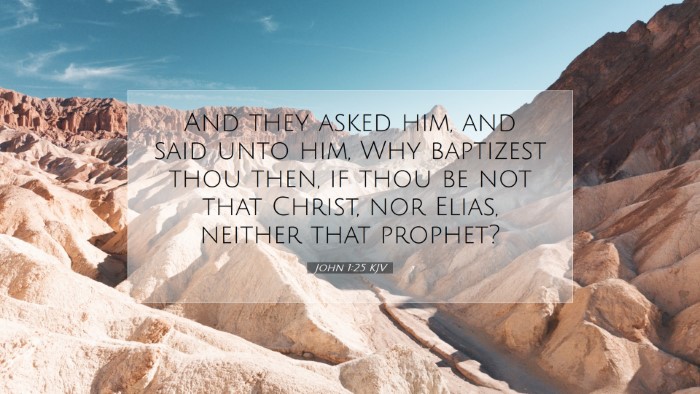Commentary on John 1:25
Verse: John 1:25 - "And they asked him, and said unto him, Why baptizest thou then, if thou be not that Christ, nor Elias, neither that prophet?"
Introduction
The Gospel of John begins not with the nativity of Christ but with a profound declaration of His eternal nature and the testimony of John the Baptist. In John 1:25, we see a critical moment in the ministry of John the Baptist where his role and mission are called into question. This passage serves as a springboard for understanding the identity of Jesus and John’s purpose in relation to it.
Contextual Background
To comprehend verse 25 adequately, we must consider the context of John the Baptist's ministry. John was a significant figure in Jewish society and was recognized by the people as a prophet. His practice of baptizing drew considerable attention, leading to inquiries from the religious authorities about his identity and authority.
The Inquiry of the Priests and Levites
In the previous verses, we see representatives from Jerusalem, including priests and Levites, approaching John. Their questioning was rooted in a desire to ascertain his identity amidst messianic expectations prevalent among the Jews. The question posed, "If thou be not that Christ, nor Elias, neither that prophet, why baptizest thou then?" reveals their struggle to understand the legitimacy and significance of John's baptism.
Understanding the Messianic Context
The inquiry pointedly reveals the three primary figures expected by the Jews:
- The Christ: The long-awaited Messiah who would restore Israel.
- Elias (Elijah): The prophet believed to return before the Day of the Lord (Malachi 4:5).
- That Prophet: A reference to the prophet spoken of in Deuteronomy 18:15-18 who would arise like Moses.
The Importance of John's Baptism
John's baptism was significant because it signified repentance and prepared people's hearts for the coming Messiah. This act of ritual washing symbolized a cleansing from sin and a readiness to receive a new revelation from God. The authorities’ question indicates their misunderstanding of John's mission and the necessity of repentance preceding the messianic kingdom.
The Theological Implications
Matthew Henry notes that the inquiry by the priests and Levites serves to highlight the humility and significance of John's role as a forerunner rather than the focus of attention. John recognizes that his baptism is not in itself the fulfillment of the prophetic word but is rather a sign pointing toward greater spiritual realities to come.
John's Response
Although not recorded in this verse, John’s subsequent responses emphasize his mission as one who prepares the way for Christ (John 1:26-27). He points away from himself, underscoring that he is not the light, but he testifies about the Light (John 1:8). John’s role is pivotal as he directs the people's attention toward Jesus.
Comparative Insights from Other Commentators
Albert Barnes elaborates on the nature of John's baptism and its implications. He illustrates that John's ministry was distinct from the ordinary baptism practiced by Jews, which was often a rite of purification. Instead, John's baptism represented a call to a deeper, transformative repentance - an inward change of heart that aligns with the imminent arrival of the Messiah.
Adam Clarke emphasizes the theological significance of this inquiry, noting it represents a moment where God’s plan unfolds. The connections made between John's baptism and the expectations of the Jewish community highlight the continuity of God’s redemptive narrative throughout scripture.
Conclusion
John 1:25 encapsulates a critical moment of misunderstanding regarding the ministry of John the Baptist and its relation to the Christ. The questioning of the priests and Levites serves not only as a narrative device but as a theological reflection on the nature of faith, repentance, and the messianic hope within Judaism. For pastors, students, and theologians, this passage reminds us of the importance of humility in ministry and the centrality of directing others towards Christ.
Applications for Today
As we reflect on this verse, we may ask ourselves:
- How are we, like John the Baptist, pointing others to Christ in our ministries?
- Are we cultivating a spirit of humility and service as we navigate our roles as believers?
- How does our understanding of baptism align with the call to repentance in our current cultural context?
In summary, John 1:25 serves as a reminder that true ministry focuses on lifting Christ high and leading others to His transformative grace.


